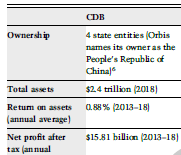
Climate or a nine member court.
Time to pick.
Time to pick.
https://twitter.com/steve_vladeck/status/1454166118415978505
As a reminder, the only reason @rhodium_group concluded that
the US could still meet its climate goals...
even if Build Back Better lacked a clean electricity standard...
Was an assumption of lots of EPA action under existing statutes.
the US could still meet its climate goals...
even if Build Back Better lacked a clean electricity standard...
Was an assumption of lots of EPA action under existing statutes.
https://twitter.com/toddntucker/status/1450820613355057152?t=dryaUCAtjLYlGfaWjKGC9g&s=19
#FightFor15
https://twitter.com/toddntucker/status/1307119883897974785?t=P1yz0PSaOLSF7S7zgqsY8A&s=19
Yep. And an excellent day for Breyer to retire.
https://twitter.com/brianefallon/status/1454167771923849223?t=eBS_l9yseiKHu0OMadSK9g&s=19
• • •
Missing some Tweet in this thread? You can try to
force a refresh













